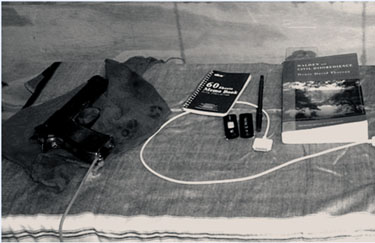 |
Breaking the Betrayal of Silence: Dr. King of His Call for Nonviolence from Vietnam to AfghanistanBy Brock McIntoshThe American Forces Press Service recently published a brow-raising article titled, "King Might Understand Today's War, Pentagon Lawyer Says," highlighting the remarks of the department's general counsel, Jeh C. Johnson, at the Pentagon's 26th annual tribute to Dr. Martin Luther King, Jr. Puzzling though it sounds, the pieces fit. Surely if it was Christmas, an article would have surfaced called, "Baby Jesus Might Understand Today's War, Pentagon Lawyer Says."
Comparing the US military to the 1968 Memphis sanitation workers, Johnson reflected, "I believe that if Dr. King were alive today, he would recognize that we live in a complicated world, and that our nation's military should not and cannot lay down its arms and leave the American people vulnerable to terrorist attack." But King would have said that unarmed fearlessness is different from armed courage. The first principle of Kingian nonviolence states that nonviolence is a courageous way of life. But this courage derives from a readiness to confront opposing groups without violence — to refuse to give in to those terrorizing you at lunch counters or buses. After 9/11, America gave in. We swallowed the bait that al-Qaeda cast in order to lure us into a quagmire that would bankrupt our economy — like the Soviets. The wars in Afghanistan and Iraq have not protected us from terrorism. They have shaped a more violent world while pillaging the US economy and slashing the sort of social programs that King struggled for throughout his lifetime. Although Johnson compares the Afghanistan War to the Good Samaritan story, America has been on the wrong side of history in Central Asia. In the 1980's, the US government abused Afghanistan through its proxy war against the USSR, leaving the country for dead in the hands of the same ultraconservative Mujahedeen warlords running the country today, whom we are now backing. Today, we are abusing Afghanistan by using the country as a meeting ground between two forces, neither of which calls Afghanistan home: America and al-Qaeda. After recouping in safety on the sidelines of Kuwait and Kyrgyzstan, America emerges on the field of Afghanistan only to battle newly refreshed al-Qaeda and Talib soldiers from the sidelines of Pakistan. Certainly, there has been improvement in some sectors of Afghan society, but Good Samaritans don't launch drone strikes and Tomahawk missiles into Third World villages — killing civilian children — to capture a few bad guys. So is there a nonviolent alternative? General Douglas MacArthur thought so when he said: "In the evolution of civilization, if it is to survive, all men cannot fail eventually to adopt Gandhi's belief that the process of mass application of force to resolve contentious issues is fundamentally not only wrong but contains within itself the germs of self-destruction." Analyzing 67 transitions from authoritarianism since 1972, a Freedom House report concluded that 50 could be attributed to nonviolent organizing, and those that used nonviolence were more likely to remain free. These figures were released before the Tunisian and Egyptian uprisings and the rest of the secular, nonviolent Arab spring, which has done more to damage al-Qaeda in two months than the US has managed since the CIA established the Bin Laden Issue Station fifteen years ago. Even the Pentagon's own RAND Corporation concedes that "military force" has about a 7 percent chance of ending terrorist organizations. History demonstrates what Afghans can achieve without violence. The world's first nonviolent army, the Khudai Khidmatgar, was founded in 1929 by Badshah Khan, who organized nearly 100,000 Pashtuns (the Taliban's tribal-origin) to trade their arsenal of weapons for a variety of nonviolent tactics. Their work was instrumental in ousting the British occupation. Unfortunately, Afghanistan's familiarity with Khan and strategic nonviolence is hampered by its literacy rate and availability of and access to information. To make up for the disparity, civil resistance literature is being translated into Pashto and Dari by the Albert Einstein Institute (guided by its Afghan-born director), Maria Stephan (former Manager of Educational Initiatives at the International Center for Nonviolent Conflict), and the Fellowship of Reconciliation. Translations include From Dictatorship to Democracy, A Force More Powerful, and the comic book, The Montgomery Story. Still, given the country's literacy rate and lack of access to internet and libraries, educational CD's and DVD's are alternatives that must be explored. Under Taliban rule, widespread underground Titanic-viewing-parties tapped the Afghan desire for civil resistance. This urge would be exponentially-more fulfilled through watching King or Gandhi, rather than Leonardo DiCapario. Afghan university classes and programs would also be useful means for spreading nonviolence, as well as workshop and trainings led by Afghans touring cities and the countryside. Progress is slow. The obstacles are daunting. But groups like the Awakened Youth of Afghanistan and the Afghan Youth Peace Volunteers are energized and growing — and the youth are both the majority and the future of Afghanistan. Specialist Brock McIntosh first read Henry David Thoreau's "Essay on Civil Disobedience" in Afghanistan while cleaning his 9mm pistol on a table built by KBR. Like Martin Luther King, McIntosh's pilgrimage to nonviolence was triggered by Thoreau. McIntosh is still in the service but currently applying for conscientious objector status.
|


